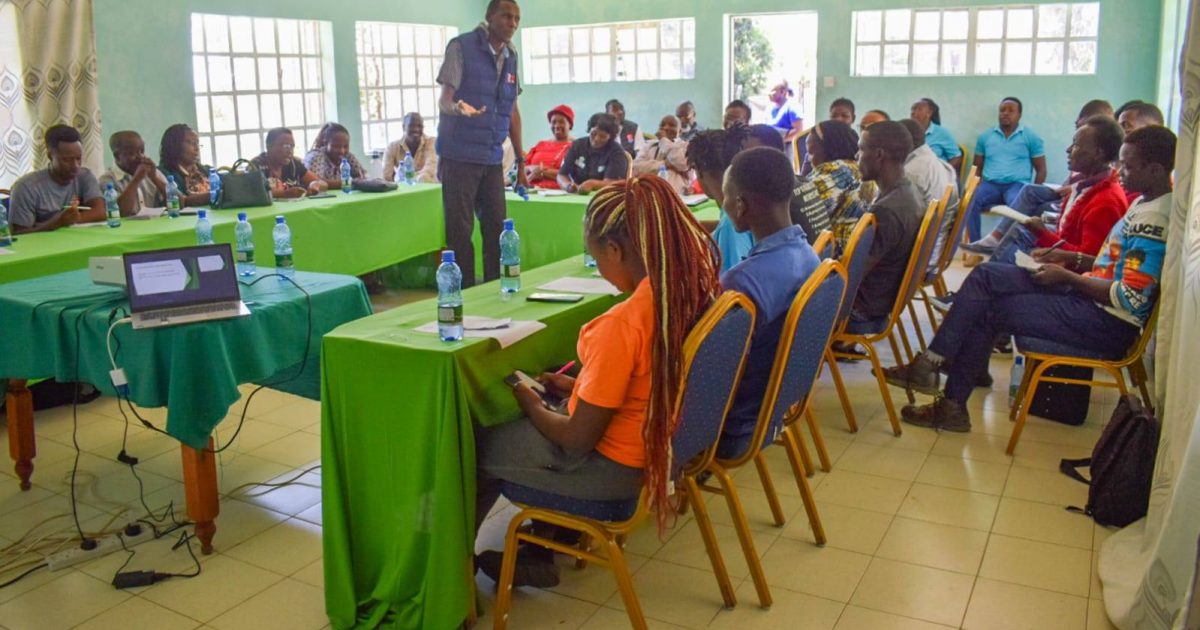The County Government of Nakuru in collaboration with Egerton University, Pest Control Products Board (PCPB) and Agrochemicals Association of Kenya (AAK Grow) has trained 90 extension officers on integrated weed management to help in combating the threat posed by weeds on food security and nutrition in the country.
County Agriculture Chief Officer Newton Mwaura explained that the training was aimed at capacity building the officers in preparation for the long rain season where they will be able to train farmers on proper agronomical practices.
The extension officers, Mwaura added, have also been trained on how to identify illegal pesticides as a way of bolstering the fight against the influx and usage of unregistered, counterfeit and banned pesticides into the mainstream markets in the country.
The chief officer stated that the trainees were retooled with skills that will enable them teach farmers on the responsible use of pesticides as a sustainable and safe way to produce food.
He elaborated that the training emphasized weed management where extension officers were sensitized on the classification, management of weeds using an integrated approach, and safe use of pesticides.
“The extension officers will now be able to detect smuggled illegal, unregistered, and counterfeit pesticide products,” the Chief Officer elaborated.
The official stated the training had come at a critical time as misuse of pesticides was causing loss of biodiversity, destroying beneficial insect populations and reducing food safety.
The devolved unit’s department of Agriculture, Mwaura added was alive to the significant challenges posed by pests, diseases, and weeds, which often result in staggering losses of 30 to 40 percent, adding that addressing these challenges demanded a concerted effort from all stakeholders, both at the national and county levels.
The chief officer said it was important to equip extension officers with a knowhow to detect counterfeit and illegal pesticides as such products are neither tested nor evaluated, may contain chemicals that are either banned or restricted because of the risk they pose to human health and/or the environment, may be ineffective at protecting crops from pests and may destroy or spoil crops
He said to manage the pests, diseases and weeds the first requirement for a farmer was to correctly identify them. This he added was done through crop monitoring sometimes with help of extension officers.
The County official indicated that through the initiative, extension officers will be better equipped to train small holder farmers to adopt Good Agricultural Practices (GAPs) to ensure healthy crops and lower the risk of contaminating produce with dangerous pathogens or agrochemicals.
Mwaura disclosed that the initiative was part of a process by Governor Susan Kihika’s administration and development partners to streamline Kenya’s food production systems to align them with the sanitary and phytosanitary standards, the guideline for producing safe food.
“Farming is a noble profession and there is need to have extension officers adequately skilled to educate farmers on food safety, environmental sustainability and workers well-being in fruits and vegetables farming,” said the official.
The Chief Officer noted that by following GAPs from field preparation through harvest, storage and marketing, the risk of contaminating produce could be greatly reduced.
Mwaura noted that reducing pesticide risks will improve the safety of food and protect farmers, community members, animals, and environmental health.
To farmers, weeds are an expensive nuisance. They fight for water and nutrients with crops and thus interferes with their healthy growth. To get rid of them, farmers have to spend extra money on herbicides and hiring workers, which in turn eats into their profits.
The most common weeds in Kenya include striga (also called witchweed or “Khayongo”) which is a parasitic weed that attaches to the roots of cereals like maize and sorghum, causing significant crop loss, amaranthus species (pigweed), sow thistles (Sonchus species), goosegrass (Galium aparine), field dodder (Cuscuta japonica) common purslane (Portulaca oleracea), bidens pilosa (Black Jack), and cleavers.
It is said that because weeds do not strike as violently as insects, there is a tendency to underestimate their economic importance. Even when a farmer is forced to abandon a crop to weeds, such incidents do not attract attention.
The United Nations Food and Agriculture Organization estimates that nearly three million people are poisoned by agricultural chemicals and 200,000 die every year. In Kenya, about 350,000 cases of pesticide poisoning are reported annually.
By Esther Mwangi



